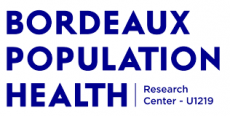Evaluating a phone-based Interactive Voice Response system for reducing misinformation and improving malaria literacy
Résumé
In Burkina Faso, malaria remains a major issue despite the use of insecticide-treated nets (ITNs), especially in underserved communities. A study assessed a mobile phone-based Interactive Voice Response (IVR) service in local languages to improve malaria health literacy. A randomized trial compared users of the local language version with those using a French version. The results showed a 30.33% increase in knowledge, 21.77% in attitude, and 35.38% in practice among the local language group, while the French group had lower improvements. Key factors for adoption included usability, privacy, trust, and compatibility. Participants preferred local language and voice interfaces, with younger users favoring games and older ones preferring text-based interfaces. This study highlights the potential of local language IVR to effectively boost malaria health literacy and combat misinformation in underserved areas.
Domaines
Santé publique et épidémiologie| Origine | Fichiers éditeurs autorisés sur une archive ouverte |
|---|



